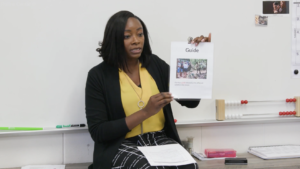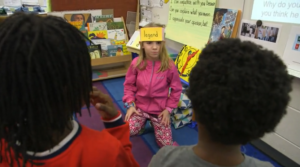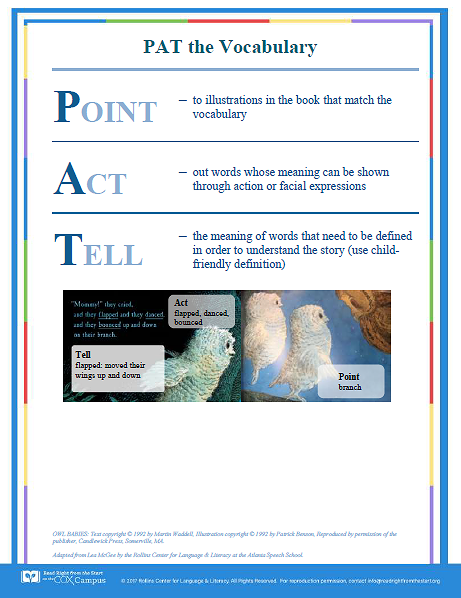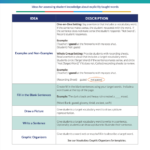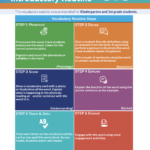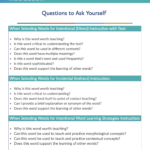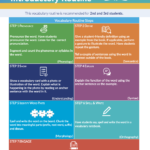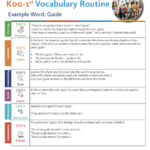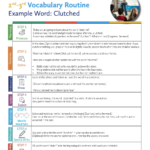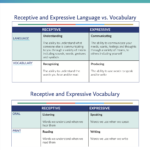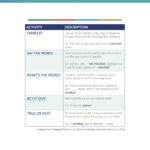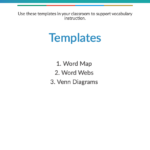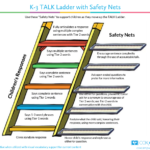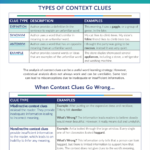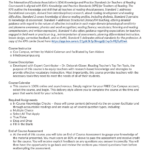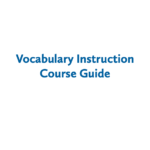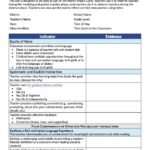Vocabulary Instruction
The purpose of this course is to equip teachers with research-based knowledge and strategies to provide effective vocabulary instruction. Most importantly, this course provides teachers with the necessary tools they need to meet the needs of all of their students.
- Cost
- 100% Free
- Time to complete
- 4 Hours
- K-3 teachers
- Learners will be able to define the different types of vocabulary and describe the characteristics of vocabulary knowledge.
- Learners will be able to understand the research that underpins vocabulary and its connection to literacy development.
- Learners will be able to define academic vocabulary and effectively choose words for instruction.
- Learners will be able to identify and describe the four components of effective vocabulary instruction.
- Learners will be able to explain the characteristics of direct and indirect vocabulary instruction.
- Learners will know which vocabulary assessments to use based on purpose.
Vocabulary knowledge is essential for comprehension and is a strong predictor of a child’s later reading success.
How it Works
-
Learn at Your Own Pace
You don’t have to finish the course all in one sitting. In fact, we recommend you take this course a little bit at a time, incorporating what you’ve learned in the classroom.
-
Earn IACET CEUs
In order to pass and receive IACET CEUs for this course, you will first need to complete all the lessons, then complete the end of course assessment with a score of 80% or higher.
-
Free Guided Resources
As you go through a course, we’ll introduce you to free resources that will help you implement what you’re learning.
-
Never Learn Alone
Have a question on what you’re learning in the course or how to use a resource? Reach out to the Cox Campus community for advice or to lend a helping hand to others.
Lessons
-
Lesson 1
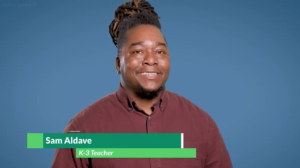
An Introduction to Vocabulary Instruction
Duration 23 minutesIn this lesson, you will learn what vocabulary is and compare the different categories of vocabulary we use to communicate. In addition, you will learn about vocabulary breadth and depth, including how it may vary depending on children’s backgrounds. Finally, you will learn about different types of vocabulary assessments to use with students. -
Lesson 2
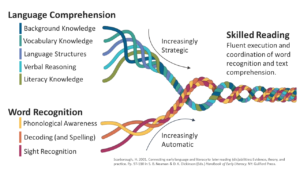
The Reading Frameworks and Vocabulary
Duration 17 minutesIn this lesson, you will visualize how vocabulary fits into three reading models. In addition, you will discover the relationships between oral language, vocabulary, and comprehension. -
Lesson 3

Getting Ready for Vocabulary Instruction
Duration 20 minutesIn this lesson, you will learn about academic words. In addition, you will learn about three approaches to selecting words for instruction and get a method for helping you choose words. -
Lesson 4

Vocabulary Instruction
Duration 10 minutesIn this lesson, you’ll learn the difference between direct and indirect vocabulary instruction. In addition, you’ll get an overview of the four components of effective vocabulary instruction. -
Lesson 5

Facilitate Rich and Varied Language Experiences
Duration 25 minutesIn this lesson, you will dive deeper into the first component of effective vocabulary instruction, facilitating rich and varied language experiences. You will learn about point-of-contact teaching, intentional oral language experiences, and wide reading. -
Lesson 6

Explicitly Teach Focus Words with Text
Duration 38 minutesIn this lesson, you will dive deeper into the second component of effective vocabulary instruction, explicitly teaching target words with text. You will learn an introductory vocabulary routine that you can use in your classroom. -
Lesson 7

Explicitly Teach Independent Word Learning Strategies
Duration 21 minutesIn this lesson, you will dive deeper into the third component of effective vocabulary instruction, explicitly teaching independent word-learning strategies. You will learn about the pros and cons of using word-learning strategies such as dictionaries, contextual analysis, and morpheme analysis. -
Lesson 8

Foster Word Consciousness with Extended Instruction
Duration 33 minutesIn this lesson, you will dive deeper into the third component of effective vocabulary instruction, fostering word consciousness with extended instruction. You will learn how to create a word-rich environment, incorporate wordplay into your daily schedule and get ideas for engaging extension activities. -
Lesson 9

Teaching Vocabulary Best Practices
Duration 25 minutesIn this lesson, you will learn different research based instructional practices to use in your classroom. You will use your knowledge to reflect on your instructional practices. -
Lesson 10

Vocabulary Instruction End of Course Assessment
Duration 30 minutesIn this lesson, you will take the end-of-course assessment and post-course survey. You must score 80% or higher to pass the assessment and receive your certificate of completion.
Your Facilitator

FAQs
The Rollins Center, of the Atlanta Speech School, in some cases, may allow an instructor, facilitator, content editor or a subject matter expert or consultant with proprietary interests to conduct professional development activities at Rollins events, provided that appropriate disclosure of such interest is made. Disclosure of proprietary interest will be made on course material and at the beginning of the course/learning event, when applicable.


